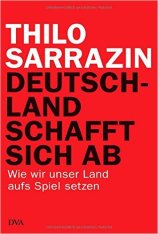Ikke meget har ændret sig i hovedet på mennesket
siden Platon skrev sin hulelignelse for 2350 år siden.
Velstand og dominans med ædelt metal (?)
Nysgerrighed, religion og merkantile interesser var bl.a. drivkræfterne, da den oversøiske ekspansion begyndte i 1500-tallet fra Europa. Under fire gange kong Philip af Spanien var der velmagtsdage for en stund efter fundet/plyndringen af enorme mængder ædelt metal i Syd- og Mellemamerika. I 1500 årene blev omkring 170 ton guld og 8.200 tons sølv afskibet til Spanien. De relativt sjældne metaller havde i tusinder af år været eftertragtet og derfor især anvendt direkte som international værdimåler og pengeenhed.
De årlige afskibninger af guld og sølv nåede 16 millioner pesos pr. år under Philip den IV (1621-1665). Det var utrolige skatte de spanske krigsskibe transporterede over Atlanten. Spaniens misundelige naboer i Europa gjorde alt for at tilegne sig disse værdier under transporten. Søslag fandt sted nærmest uophørligt i det Spanske Hav, omkring Azorerne eller hvor franske, engelske eller hollandske krigsføre mænd kunne trænge sig på de forholdsvis dårligt beskyttede/tungt lastede spanske krigsskibe, der benyttedes til transporten af det eftertragtede metal. Sørøveri havde indtil 1620 i en vis forstand været en anerkendt metier, som endog stater mere eller mindre direkte var involveret i.
De spanske kolonier blev styret med vicekonger og andre kongelig agenter direkte fra et enevældigt spansk monarki. Spanien holdt sit kolonirige i Syd- og Mellemamerika ind i det 19. århundrede, men dets triumf, når bortses fra sprog- og kulturpåvirkningen, forsvandt to århundrede tidligere.
Indstrømningen af fabelagtige mængder af guld og sølv fra Den Nye Verden gav Spanien en kort periode med europæisk magt og pragt, men manglen på andre ressourcer både i Spanien og i kolonierne plus styrkelsen af den nederlandske og den engelske sømagt bidrog til den bratte nedstigning for Spanien.
Med guldet kunne man købe til forbrug og betale lejede soldater til krig med henblik på mere erobring og kolonisering; men det lå lige for, at et ressourcesvagt enevældigt Spanien heller ikke kunne andet end købe til forbrug i udlandet.
Den spanske hertug af Alba brugte øgede skatter til undertrykkelsen i Nederlandene. 1573 blev militærmanden Alba erstattet med diplomaten Luis de Requensens som vicekonge i Brussel (det nuværende Belgien var en del af Nederlandene), men oprøret var allerede i gang. Spanien gik bankerot i 1575, mest p.g.a militærudgifterne i dette forholdsvis fjerntliggende land. Manglende betalinger førte til mytteri fra den spanske hær ved Antwerben; de fleste tropper var udenlandske lejetropper.
Den fransk-engelske-hollandske alliance mod Spanien af 1596 og den Engelsk–Spanske Krig (1585–1604) havde effekt. Det engelske flådeangreb mod Cádiz 1587 var en strålende succes, selvom den delvis byggede på en tilfældighed, idet store dele af den spanske flåde var strandet på den irske vestkyst p. g. a. fejlnavigation efter slaget ved Gravelinies i Den Engelske Kanal uden højdetagen for afdriften p.g.a. Golfstrømmen, da den spanske flåde søgte væk nord om Skotland.
Den Uovervindelige Armada:
http://www.futura-dtp.dk/SLAG/SlagS/SpanskeArmada.htm
beretter:
“Engelsk-spanske Krige, 1588 Engelsk hjælp til de nederlandske provinser i deres opstand mod Spanien fik den spanske konge, Philip II, til at forberede en enorm invasionsflåde. Kaldt den Uovervindelige Armada, skulle flåden sikre kontrollen med Den engelske Kanal og derefter transportere en spansk hær under hertugen af Parma (Alessandro Farnese) fra Nederlandene til England. Forsinket i et år af Sir Francis Drakes dristige angreb på Cadiz i 1587, sejlede armadaen endeligt i maj 1588. Den bestod af 130 skibe (inkl. 20 galleoner, 44 bevæbnede handelsskibe og 8 middelhavsgalejer), som medførte i alt 2.500 kanoner og 30.000 mand, hvoraf to tredjedele var soldater. Under kommando af hertugen af Medina-Sidonia (Alonso de Guzmán), led armadaen primært under manglen på erfaren ledelse til søs og fra en svaghed med hensyn til langtrækkende kanoner.
Imens havde Elizabeth I organiseret en landhær for at afvise invasionen og havde beordret den engelske flåde under kommando af Lord Charles Howard af Effinghamtil søs, assisteret af Drake, Sir John Hawkins og Martin Frobisher. Kernen af flåden bestod af 34 skibe som medførte 6.000 mand. yderligere 163 privat ejede fartøjer satte også til søs, men halvdelen af disse var for små eller for svagt bevæbnede til at have nogen betydning.
Forsinket af storme nærmede armadaen sig ikke den sydlige kyst af England før den 19. juli. Den engelske flåde, som manøvrerede til vindsiden (vest) af fjenden, begyndte at bombardere de spanske skibe formeret i en 11 km lang halvmåne, idet de drog fordel af den engelske overlegenhed i langtrækkende kanoner. Ud for Portland Bill den 23. juli, Isle of Wight den 25. juli og ind i Kanalen bestrøg de engelske kanoner de spanske skibe og forårsagede alvorlige tab blandt besætningerne, mod kun små tab for dem selv. Den 28. juli lagde den spanske kommandør ind ved Calais. Den næste nat sendte englænderne otte fartøjer bevæbnede med sprængstoffer som ildskibe ind i den tæt pakkede havn. Disse torpedoer fra det 16. århundrede krævede, sammen med kollisionerne på grund af kaotiske manøvrering for at undgå angrebet, en høj pris blandt armadaen. Medina-Sidonia satte hastigt til søs igen. Ved Gravelines, 24 km sydvest for Dunkirk, mislykkedes hans møde med Parmas tropper, i høj grad på grund af den blokade som den lille nederlandkse flåde opretholdt. Uden noget alternativ vendte spanierne om og kæmpede mod deres plageånder i otte timer den 29. juli.
Tre af armadaens skibe blev sænket og yderligere fire eller fem drevet op på bankerne. Begge sider havde på det tidspunkt opbrugt deres ammunition. Med en ændring i vindretningen afbrød spanierne slaget og sejlede nordpå ind i Nordsøen og rundt om det nordlige Skotland. Mishandlet af storme nåede lidt mere end halvdelen af den oprindelige styrke de iberianske havne i september og oktober.
Alt i alt havde briterne påført langt mindre tab på armadaen end storme og manglen på mad og vand. Men den moralske virkning af det heroiske forsvar mod det mægtigste rige siden romertiden hævede England til en førsteklasses sømagt. Kampen markerede også en afgørende ændring i flådetaktik: den forøgede effektivitet af langtrækkende kanonild gjorde klart den gamle, nærgående bordingsstil af krigsførelse til søs forældet. Således rangerer bekæmpelsen af den Spanske Armada som et af de afgørende slag i historien.”
To nye spanske forsøg på at bringe angreb til udførelse via Irland blev slået tilbage af uvejr i 1596 og 1597.
I 1595 blev den Spanske Krone tvunget til at erklære sig bankerot for tredje gang inden for mindre end fyrre år.
Armadaens fald forhindrede Spanien i at invadere England og afskar Kong Philips bestræbelser på at fastholde kontrollen med Nederlandene, der var blevet handelscentret i Europa. Spaniens krig med Frankrig nogle få år efter gjorde ondt værre. Der var en klar ulyst til at fortsætte Philip II’s aggressive politik. Der var indgået fred med Frankrig i 1598. De sidste år af sit liv levede den ellers magtfulde og ambitiøse Philip II som en ydmyg og desillusioneret hersker, der havde indset at dominans i Vesteuropa og undertrykkelse af det han betragtede som kætteri udenlands ikke mere var hans opgave. Hans sidste store opgave var at slutte fred med Frankrig, før han døde i 1598 i en alder af 71.
Herefter fulgte fred med England 1604, og efter en fjerde statsbankerot i 1607 en våbenhvile med Nederlandene i 1609. Kampen for at underlægge sig Nederlandene havde vist sig at være et håbløst dræn af mænd og penge.
Men ædelmetal-afskibningen fra Den Nye Verden blev ved at øges, og det samme gjorde Spaniens militærmagt, både til lands og til vands i de efterfølgende år. Spanien lange dominans på havene blev kun brudt af hollænderne ved Slaget ved Downs (1639). Af de syv nordiske provinser var Holland ved at blive økonomisk og teknologisk den mest dynamiske del af Vesteuropa. Holland repræsenterede en voksende kontrast til Spanien, der havde udviklet sig til et nærmest lukket samfund i løbet af 1600-tallet og under trykket af krige, skatter og dets egne social værdier var det ikke længere i stand til at ekspandere økonomisk. Holland blev det frieste og mest åbne land i Europa, og i de næste to generationer det mest socialt og økonomisk kreative.
Også under Philip III forblev den spanske flåde den stærkeste i den vestlige verden, men kilderne, der skulle bruges og forbruges, udtørrede uden hjemlige nyinvesteringer: Alt flådeudstyr var udslidt og meget til erstatning skulle importeres fra nord. De spanske lønninger steg hurtigere end det generelle prisniveau i begyndelsen af 1700-tallet, men omkostninger ved flådekonstruktion, udstyr til samme og vedligeholdelse heraf steg i Spanien til det dobbelte eller tredobbelte af niveauet i Holland, England og Frankrig. I perioden 1570-1620 var Vesteuropas glansperiode m.h.t. piratvirksomhed, og den spanske flåde var det almindelige mål. Da konflikten igen begyndte med Holland efter den 10-årige våbenstilstand tilførte Holland den spanske flåde nederlag, og gjorde det dermed uigenkaldeligt klart, at den hollandske afhængighed af Spanien var ovre.
Enevældigt Frankrig sikrer sin stilling – Spanien sin nedgang
Arvekongen Louis XIV med den selvvalgte titel af ”solkonge” havde Cardinal Mazarin som den styrende skikkelse efter forbilledet. Cardinal Richelieu, der døde i 1642, havde sikret fransk sejr i forhold til Østrig og til de tyske lande i Kejserkrigen. Louis XIII døde året efter Richelieu. Den Westfalske Fred blev nu bragt i hus med Hapsburgerne efter 30-årskrigen eller rettede Kejserkrigen. Louis XIV var mindreårig, og Richelieus selvvalgte efterfølger – den italiensk fødte – Cardinal Mazarin fik efter sporadisk at have passiviseret den franske adels modstand mod en fortsættelse af Richelieus politik freden udadtil på plads i 1648. Parlementet i Paris særligt repræsenteret ved de lavere klasser og borgerskabet nægtede i lange perioder at godkende skattelovene. Der var jævnligt opstande i Paris. Det lykkedes Mazarin at klare balancegangen og sikre den enevældige kongemagt med loyale tropper. Den Westfalske Fred løste den østrigske del af det Hapsburgske problem, men den spanske del heraf (lande kunne arves af andre landes konger og dronninger via giftermål og arvefølge). Den spanske Krone var fortsat opsat på at vende nederlag til sejr under de Hapsburgske Phillipper II-IV. Ligeledes lykkedes Mazarin med Freden over Pyrenæerne i 1659 med en bekræftelse af Alsace’s franske tilhørsforhold, et Rhin land, der havde en privilegeret politisk status i forhold til det Hellige Romerske Rige. Dertil en mindre stribe sprogindflydelse i noget af de tidligere spanske Nederlandene (i dag en del af Belgien) plus tab af alle spanske territorier på den nordlige side af Pyrenæerne til Frankrig. Spanien havde især forsøgt under opstandene i Paris med pengestærke mænd sendt ind for øve indflydelse og sammen med rebellerne at bringe Frankrig til fald. Da det ikke lykkedes, og da opstandene var effektivt slået ned, kunne Mazarin vende hele sin opmærksomhed direkte mod Spanien. Om udfaldet var der ingen tvivl, eftersom Englands Lord Protector Oliver Cromwell og den britiske flåde ydede en effektiv støtte. Cardinal Mazarin dør 1661. Han efterlod en stærkt centraliseret fransk Krone med en synlig prestige udadtil. Den franske indflydelse var sikret i Europa i det 17. århundrede. Det eneste der manglede var, at Louis XIV skulle sole sig i sin glorie og forberede vejen for kollapsen.
Merkantilismen sættes i system mod deroute
Den vigtigste af Louis XIV’s ministre var fra 1665 Controller-General of Finances (finansminister) Jean Baptiste Colbert, der var havde været personalechef under Cardinal Mazarin, hvis finansielle rådgiver han blev.
Colbert tolkede en nations velstand efter mængden af tilstedeværende likviditet.
I denne forblindelse udtænkte han en slags økonomisk nationalisme, der blev kendt under betegnelsen ”Merkantilisme” eller ”Colbertisme”. Mod dette mål mente han at kunne føre landet, der i den grad manglede det ædle metal, ved at kompensere herfor ved at stimulere handelsbalancen i national favør og ved at igangsætte kontrol med de potentielle ressourcer af ædelt metal og med opdyrkning af markeder forskellige steder på jorden.
Det han forstod ved en favorable handelsbalance var, at eksporten skulle overstige importen, således at forskellen kom hjem i guld og sølv. Hans simple procedure var at favorisere de begyndende franske industrier, ellers fremstillingsvirksomheder og handelen med deres produkter, og samtidig søgte han at modvirke importen fra udlandet via toldtariffer for at trække Frankrig væk fra bankerottens rand. Uddannede kunstnere fra udlandet blev inviteret og antal industrier blev statsligt understøttede, f.eks. gobelinfremstillingen (grundlægger af de kongelige gobelinarbejder i Beauvais), silke- og glasprodukter og pottemagerindustrier.
På disse felter opnåede Frankrig faktisk en overlegenhed. Han fjernede adskillige interne told- og afgiftsbarrierer på trods af protester fra dem, der nød gavn heraf, for at fremme handelen. Colbert gik også i gang med kanal- og vejbyggerier, han var således initiativtager til Languedoc Kanalen, der forbinder Atlanterhavet med Middelhavet.
Colbert var lige så engageret i at opbygge et kolonialt herredømme for Frankrig og i at organisere den koloniale handel på en måde, så den blev i stand til at konkurrere med den engelske og den hollandske.
Colberts markedsreformer omfattede import af venetiansk glas og flamsk klæde og manufakturer. Han var yderst aktiv med sit told- og tarifsystem. Han sikrede at Fransk Østindisk Kompagni kunne skaffe sig kaffe, bomuld, farvestoffer, pelse, peber og sukker. I tillæg grundlagde han den franske handelsmarine.
Uheldigvis for Colbert og måske også for Frankrig gav hans økonomiske program ikke i de forventede resultater. Det får vi allehånde forklaringer på:
- Andre nationer fulgte ikke det samme program
- Manglende opbakning til systemet fra kongens side
- Frankrig blev dog fortsat i stigende grad forarmet p.g.a. af kongens overdrevne pengeforbrug på krige. Således kan vi læse i enhver mainstream-historiebog.
Udgangspunktet for Colbert var ønsket om national finansiel stabilitet ved at øge likviditeten.
Nye fintmaskede skatteopkrævningssystemer og et nyt nationalregnskab blev indført. Sideløbende hermed førtes helt unødvendige og dyre krige. Bag disse lå delvis ønsket fra kongens side om at få afgrænset Frankrig af Rhinen, Alperne og Pyrenæerne delvis den gamle arvefølgestrid mellem Bourbonerne og Hapsburgerne.
Augsburg Liga-krigen (1688-1698) efter England, Spanien, Sverige, Holland og et antal mindre tyske stater fandt sammen for at begrænse Solkongens ambitiøse udfald mod nord og øst. Straks efter en ellers udmattende lang krig og freden i Ryswick var underskrevet, faldt Louis’ blik på Spanien igen. Philip den IV’s død i Spanien 1665 havde sendt Philips eneste søn, den fysiske og mentalt svage Charles II på tronen, der døde barnløs, november 1700. Herefter ville både det østrigske Hapsburgerhus og de franske Bourboner til magten i Spanien. Det endte med Louis’ andet barnebarn Philip af Anjou, blev Philip V af Spanien. Hele Europa blev forfærdet over dette udfald, og selvom udmattelsen efter den afsluttede krig ikke havde fortaget sig, fulgte Krigen om den Spanske Arvefølge (1701-1713). Fredsafslutningen i Utrecht 1713 og 1714, hvor en mindre omtegning af Europa-kortet fandt sted samtidig med en løfte om af den spanske og den franske krone aldrig skulle kunne forenes. Philip forblev konge mod at en række spanske besiddelser afleveredes til Østrig, Neapel, Milano, Sardinien, og Nederlandene blev i et århundrede fremover benævnt Østrigske Nederlandene. England fik Gibraltar og vigtige import privilegier for handelen på Latin-Amerika.
Frankrig hverken vandt eller tabte på kontinentet. Efter næsten et halv århundredes kamp om kontrollen med Europa, havde Louis XIV gjort overraskende lille fremskridt.
Jean Baptiste Colbert havde været Frankrigs finans-, marine- og handelsminister fra 1661. Han døde 1683 efter have skabt grundlaget for Louis XIV store politiske og militære magtudfoldelse.
England havde en gæld på 10 mill. Pund i 1711, Frankrig var bankerot ved Louis XIV’s død i 1715.
Velstand og dominans når metal skifter til papir
Næste skud på stammer var John Law. En skotsk finansmand (1671-1729), der som ung måtte flygte fra England på grund af en duel affære. Han lærte i Holland og Italien om bankvæsenet og spil. Efter være vendt tilbage til Skotland bragte han forskellige forslag i sine skrifter om en nyordning af pengevæsenet. Han opererede med bl.a. Davanzatis sondring mellem ’bytteværdi’ og ’brugsværdi’ – en tilsvarende sondring genbruges af Karl Marx i 1800 årene – men blev bemærkelsesværdig på grund af flere andre temmelig spøjse økonomiske teorierne. Den eksisterende pengemængde bestemmes ikke af importen af guld og betalingsbalanceoverskud (som merkantilisterne hævdede), men nærmere af kreditudbudet i økonomien, hævdede John Law – hvor vi hævder at kreditten også kan strammes. I 1705 publiserede Law en monetær teori som argumenterede imod brugen af metalpenge og favoriserede papirpenge i den sande Keynesianer-stil. Law hævdede at brugen af papirpenge ville stimulere handelen, og det er jo ikke helt løgn.
Det lykkedes ham først i Paris sammen med velhavende venner – bl.a. Hertugen af Orleans, der stod Louis XV nær – at føre sine stort anlagte finansplaner ud i livet efter Frankrigs bankerot. Law lagde straks en strategi til at stabiliserede Frankrigs økonomi. I maj 1716 fik han koncession på en diskonto- og kreditbank, som fik navnet Banque Générale, designet efter den dengang succesfulde Wisselbank i Amsterdam. Den udstedte sedler, som snart blev modtaget i de offentlige kasser, og modtog guld og sølvindskud. Banksedlerne var indløselige mod ædelmetalmønt ved sedlernes udstedelse. 1718 blev foretagenet statsbank, og snart efter planlagde Law en kæmpekonvertering af Frankrigs statsgæld. Året efter grundlagde han det såkaldte Mississippikompagni med aktiekapital på 100 mill. Fr. Law udnævntes 1720 til generalkontrollør for finanserne. Under dette udstedtes så mange pengesedler og aktiebreve, at den økonomiske krise måtte komme. Kompagniet skulle udbytte Frankrigs besiddelser i Amerika. Siden blev kampagniet slået sammen med andre handelsselskaber, hvorved området udvidedes til Asien. Gentagne gange øgedes aktiekapitalen, og der opstod en sand aktiemani, så at kurserne gik op i mere end 30 gange pålydende. Men 1720 brast boblen med store tab for både staten og private. Law flygtede og døde i Venedig.
England kører parallelt ganske lignende papirprojekt [foruden så meget andet]
South Sea Compagniet i England lignede meget. Tyve års krige med et ophold på tre år uden krig. Med en statsgæld på 10 millioner Pund foreslog England den afviklet ved 6 pct. gennem dette selskab. Selskabet fik derudover nogle handelsrettigheder. Selskabet planlagde sig en monopolstilling på slavehandelsmarkedet. Desuden forventede det, at mexicanerne og sydamerikanerne ivrigt ville bytte deres guld og juveler for uld- og skindklæder fra England. Selskabet udstedte aktier for at kunne lave finansoperationer og skaffe flere investorer. Aktiesalget gik strygende i begyndelsen, og hurtigt blev der udbudt flere papirer, og sådan fortsatte det, tilsyneladende ind i stratosfæren. Udspekuleret marketing og spekulation gik hånd i hånd.
Meget som Enron i USA op til december 2001 eller som Landmandsbankkrakket op til 1923 i Danmark:udbredt korruption mellem direktørerne, selskabets officielle tegnere og deres politiske venner, overvurderede aktiver og undervurdere passiver. Selskabet hævdede at have fingre i flydende palæer og udvinding af solskin fra grønsager. Sir Issac Newton, der havde forudset et kommende kollaps, solgte sine aktier tidligt med en fortjeneste på 7000 pund. Efterfølgende så han, at boblen blæstes endnu mere op med varm luft, og han begyndte at købe igen.
Dels krigen igen mellem Spanien og England 1718, der lukkede for de spanske kolonihavne i Amerika dels det faktum, at selskabet mere opererede i værdipapir-håndtering end i reel profitgivende handel med varer begyndte ledelsen at sælge sine aktie i al hemmelighed. Det kom ud, og så begyndte den store kollaps i de overvurderede papirer, der nu rev alt andet værdipapir med sig ned.
England holdt kun stand, fordi City, London nu havde status som verdens finansielle centrum. Der blev vedtaget en lov, der forbød nyudstedelse af aktier, en lov, der faktisk var gældende indtil 1825 – bemærk, cirka 100 år hvorefter alt forventes glemt (1929: Det Store Wall Street Krak). Finansernes historie berøres altid kun perifert i den traditionelle historieskrivning. South Sea boblen betød faktisk, at Bank of England overtog den økonomiske styring af den engelske nation. En medvirkende årsag var også finansieringen England krigsudgifter i perioden 1800-1815, der satte en stopper for Napoleon. 638 mill Pund var de engelske krigsudgifter i denne krig.
Merkantilismen imødegås, tilbage til guldet og papiret
Allerede den skotske filosof David Hume (1711-1776) berigede os med bidrag (”Om Penge” 1752 og ”Balance i Handelen”), der rettede sig mod de herskende tanker, dengang som nu byggende på merkantilistiske politikker (udtryk opfundet af den senere Adam Smith). Merkantilisterne fokuserede for et land på at få fat i så meget guld, sølv og soldater som vel muligt. En primitiv og kunstig tankegang inspireret af guld- og sølvfundene, som især Spanske opdagelsesrejsende (i 1500-tallet) gjorde i deres grådighed for i sidste ende at kunne veksle disse ædelmetaller for efterspurgte varer. Tankegangen dækker over en forestilling blandt folk, der ikke systematisk har gennemtænkt økonomiske spørgsmål, at forveksle penge med velstand, og jeg kan supplerende foregribe konklusionernes gang: At forveksle penge med guld.
Udenrigshandel blev betragtet som en ensidig interesse, kan man sige. Kun én af handelspartnerne ville nyde gavn af handelen – de komparative fordele som kan forklares for et barn – var ikke nået tankegangen hos de 1700-tals-handlende. Tværtimod: ”Eksporter ikke dine gode naturlige eller producerede hjemlige varer, men prøv få fat i alt det du kan fra fremmede lande”. Hvis det lykkedes for dig med den taktik, bliver du den rigeste. Vinderne var i korthed dem, som kunne samle de største mængder af værdifuldt metal eller værdifulde mineraler og tjene mest ved at beskytte deres egne varer og altså samtidig række ud efter fremmedes landes varer og endog opbygge en stærk hær for at få fat i, hvad der var behov for, ønsket eller begæret.
Merkantilismen i sin helhed var god latin indtil omkring 1800 årene, selvom den væsentligste kritik herimod blev fremsat i 1700 årene af David Hume og Adam Smidt, som vi har set. Efter Napoleonskrigene (1815) skulle England tage initiativerne. Det er uddybet i http://www.lilliput-information.com/economics/gul1/gul1.html Selskabet med begrænset ansvar og aktieudstedelse/pengeudstedelse og den fortsatte efterforskning af guldmøntfodens velstandsresultater: http://www.lilliput-information.com/economics/gul2/gul2.html
Guldet og anvisninger på guld vedblev i 1800 årene at danne rammen om den internationale samhandel med David Ricardo under den begyndende industrialisering med den internationale verdenshandels England som primus motor.
Så kom det 20. århundredes to verdenskrige som afslutningen på guldets æra og Londons betydning som finansielt centrum efter Første Verdenskrig. Så papirhandel igen under Keynes-æraen, der ikke skulle ophøre før et nyt internationalt betalingssystem byggende på teorivrøvl, dollar og guld var kollapset i 1972.
I tre-fire tiår i efterkrigstiden efter Anden (halvdel af) Verdenskrig(en) arbejdedes med ligevægte i de nationale økonomiske teorier. De officielt tilstræbte ligevægtene var tilsvarende det sidste vi så til teoriernes brug i det offentlige rum.
aktualiseres mod slutningen af det 20. århundrede
Vesteuropa var hurtigt kommet på fode igen efter WW2, og væksten førte til store europæiske eksportoverskud, der samtidig skabte en ophobning af dollars i eksportlandene. Allerede i 1960-erne begyndte Frankrig at indløse dollars i guld og andre fulgte med. Samtidig havde USA et engagement i Vietnam Krigen og andre steder, der bragte underskuddene på de amerikanske offentlige finanser på den tids uinflaterede himmelflugt. I 1967 nåede dræningen af guldreserverne i USA og i Bank of England til et kritisk punkt. At Frankrig og andre europæiske lande helt i overensstemmelse med det aftalte øgede konverteringen af dollars til guld bragte vedvarende dollaren under pres, givet at guldprisen målt i dollars fortsat var uændret, som aftalt i Bretton Woods, da de nye internationale betalingssystem til brug efter krigen blev til under WW1. Det forventedes at USA ville devaluere dollarens pris i forhold til guldet med det stadigt større og større pres fra efterspørgslen efter guld for dollars og fra USA’s handelsbalanceunderskud, ikke mindst de fortsat ufinansierede krigsunderskud på det hjemlige amerikanske budget. Samtidig ”indfarvede” de fleste europæiske lande efterhånden deres egen pengemiddeludstedelse i dollargrønt og begyndte den inflationære vækst, der gik over i stagnerende produktion og beskæftigelse og stadigt højere inflation for til sidst at ende på en rentefod for kortfristet gæld på 21%; dette var kendetegnene for Skandinavien i 1970-ere, hvor velstand omdannedes til lånt såkaldt velfærd.
Med alle vestlige lande statsgældsatte efter en velfærdsgeneration, der gjorde en dyd af at bekæmpe det frembringende og fører dens egne initiativtagere til tops, var det blevet tiden at sprede investeringerne og lade konkurrencen virke internationalt, i områder, der endnu ikke havde glemt ordet velstand.
Petrodollars var blevet grundpillen under mange udsigtsløse lånearrangementer og derfor også drivmidlet for mange af tredjeverdenslandes senere gældskriser i 1980-erne, og i 1990-erne også blandt mere udviklede stater i Latinamerika, Asien og Europa. Hvem skabte risikoen, hvem overdrog risikoen, og hvem måtte i sidste ende tage ansvaret? Allerede i februar 1945 havde USA med den saudiske konge aftalt militær beskyttelse af Saudi Arabien mod at give USA fortrinsret til landets oliekilder. Selvom olieforekomsterne blev nationaliseret i 1976 bevarede ARAMCO (sammenslutning af arabiske og amerikanske selskaber) styringen af produktionen og markederne for olie uden for Saudi Arabien. Overskydende petrodollars holdtes i amerikanske statsobligationer. Et sådant marked er selvsagt et magtpotentiale i hænderne på verdens førende militærmagt. Et eksempel: I 1980 konfiskeredes Irans og Libyens formueposter i USA, og for nylig har organisationer, der angiveligt støtter international terrorisme, lidt den samme skæbne.Sovjetunionens sammenbrud i 1989 og ny fremvoksende union i Europa gjorde det muligt nu at vende tilbage til vipperne.
US-verdens-reserve-rollen under forandring:
Fra november 2000 begyndte Irak at afregne sit oliesalg i euro og konverterede samtidig Iraks ”Olie for Mad” reservefond i FN med $10 milliarder til euros efter aftale med FN. Mellem 2001 og februar 2003 blev næsten hele Iraks olieeksport betalt i euros; cirka $30 milliarder. I den samme periode steg euro relativt i forhold til dollar med 30%. Saddam Hussein havde allerede tilbudt udvindingskoncessioner (der forblev uden virkning på grund af FN sanktionerne) til Frankrig, Kina, Rusland, Brasilien, Italien og Malaysia. Saddam Hussein havde indtil da udelukkende brugt europæiske banker til det begrænsede sanktionsprogram, “Mad for Olie”. Saddam Hussein tilkendte palæstinenserne 1 milliard euros i 2000. EU tilkendte kort efter palæstinenserne samtidig 90 millioner euros i støtte for at vise sit venskab med den arabiske verden, hvis Israel standsede betalingsstrømmen. Nogle få dage herefter indgik den Europæiske Investeringsbank (EIB) en aftale om at låne Syrien 75 millioner euros efter i otte år med sanktioner at have været udelukket fra at gøre forretninger med dette land. Lidt før, i august 2000, donerede EU 1,7 millioner euro til Yemen til støtte for eritreanere, etiopere, somaliere og repatrierede asylanter fra Yemen efter krigen med Etiopien. Støtte fra EU i euros igen: for ikke længe siden foreslog den italienske statsminister Berlusconi en europæisk version af ”Marshall Planen”, som han karakteriserede som en generøs handling til genopbygning af Europa. Han foreslog at yde palæstinenserne en sådan hjælp til en værdi af 6,2 milliarder euro over fem år. [Disse sidste ting medtages for at karakterisere motiver og situationsopfattelse blandt nogle initiativtagere.] Fra november 2000 til den 19. november 2004 er dollar faldet relativt i forhold til euro med 34,5%, fra den 1.december 2002 til 19. november 2004 med 23,5%. En lavere dollarkurs gavner dobbelt, ved at den mindsker det enorme betalingsbalanceunderskud (ved gunstig påvirkning af handelsubalancen og ubalancen i investeringsstrømmen) og øger samtidig amerikanske eksportørers konkurrenceevne, hvilket fører til større investeringer i disse eksporterende firmaer og en forøget beskæftigelse. I øvrigt tyder meget på at petrodollar-eventyret for længst er overstået på grund af den øgede import i de olieproducerende lande og reduktionen i OPEC’s andel af den samlede olieeksport. Irak har de næststørste kendte oliereserver blandt verdens nationer. 45% af EU’s olieimport kommer fra Mellemøstens oliekilder, 80% af Japans olieimport sker fra Mellemøsten, der har 60% af verdens kendte oliereserver. Skulle et sådant skift, som det benævnes enkelte steder, til petroeuro have virkning, skulle Storbritannien og Norge indføre euro, således at Nordsø “Brent” råolie kunne blive prissat i euro. Kort efter Iraks træk satte Jordan bilaterale arrangementer i gang med Irak. I august 2002 havde Iran konverteret mere end halvdelen af sine valutareserver Forex Reserve Fund til euro, og Kina var også begyndt at konvertere nogle af landets valutareserver fra dollars til euro. Samtidig fordoblede den Russiske Centralbank dens beholdninger af euro til 20% af $48 milliarder. En iransk senior olietalsmand Javad Yarjani bemærkede i en tale til det Spanske Finansministerium at ”det var muligt med den voksende handel mellem Mellemøsten og den Europæiske Union, at det kunne være passende at prisfastsætte i euro. Dette ville kunne skabe flere bånd mellem disse handelsblokke med et voksende handelssamkvem, og samtidig befordre en meget tiltrængt europæisk investering i Mellemøsten.” Det britiske herredømme blev bragt på ret køl via Storbritanniens behov for at importere mad, da det hjemlige landbrug blev fortrængt af industrien. Det amerikanske herredømme vil måske blive bragt på ret køl via USA’s behov for at importere fabrikerede varer, når den hjemlige produktion bliver fortrængt af de finansielle serviceydelser.
Unionen egner sig som den ser ud kun til underkastelse – Islam
Euro-Union er ikke et middel imod globaliseringens udløste beskæftigelseskrise. Der er intet specielt ved denne globalisering; det er blot et fyndord; international konkurrence er det rette ord. Euro-union forstærker kapitalens magt og statens magtesløshed i rollen at skulle kunne gøre noget ved arbejdsløsheden uden at have de fornødne redskaber. Det er “fremskridt” mod det 19. århundrede (her søgte man også det rigtige styringsredskab), ikke mod det 21. århundrede. Euro-Union er heller ingen modvægt mod de usociale tendenser i globaliseringen, som inkompetente analytikere fra venstre side mener; den forstærker dem yderligere. Den tvinger nemlig til tilpasning af arbejdslivet til de pengeøkonomiske kommandoer. Den Europæiske Centralbank (ECB) må føre fuldstændig fællespolitik for først 12 senere 15 og 16 forskelligt strukturerede lande i eurozonen, uden at de kan gribe tilbage til vekselkursernes udligningsventil. For at hindre kapitalen i at forlade eurozonen, må centralbanken hæve renten; men dette mindsker aktiviteten og øger arbejdsløsheden yderligere. En sådan union kan kun ende i staternes indbyrdes konflikt, hvorfra der ingen hjælp er at finde – med mindre den bliver udbygget til en transferunion eller en forbundsstat med offentlig finansudligning mellem gamle og nye deltagerlande, noget i retning af kludetæppet USA eller Den tyske Forbundsrepublik, men uden D-marken. Når overførslen af disse forbilleder på Euro-Union viser sig umulige eller møder megen modstand rejser spørgsmålet sig: Er der mulige alternative modeller, der kan redde verdensfreden? Som det kører nu: Europa og den arabiske verden er allerede begyndt at arbejde sammen økonomisk, som det blev forudskikket i Nord-Syd-Dialogen fra 1968 og i den Europæisk-Arabiske dialog fra midten af 1970-erne. Egypten, Jordan, Marokko og Tunis besluttede sig sidste år for at sætte frihandelszone op, og Algier, Libanon, Mauretanien, den palæstinensiske myndighed og Syrien inviteres til at være med i den store frihandelszone. Egypten forventes fuldt optaget i frihandelsgruppen. Imidlertid har EU forhandlet med 12 Middelhavslande som led i den såkaldte Barcelona-Proces om kooperation mellem EU og dets naboer omkring Middelhavet mod syd. Endemålet med denne Barcelona-Proces er at etablere tættere bånd vedrørende handel og sociale spørgsmål så vel som politiske. Dette skal føre til skabelsen af Euro-Middelhavs-Frihandels-Zonen bestående af 27 lande i 2010.Det er muligt at Europa-produktionerne fremover skal foregå i Nordafrika, Mellemøsten og Østeuropa, indtil de er kommet op, og vi kommet helt ned. Det er et spørgsmål om befolkningerne her finder sig i det.
To udbydere af internationale betalingsmidler
Med det sidste europæisk-monetære træk, hvis det altså er forsøg på etablering af euro som mulig reservevaluta eller afregningsvaluta i en eller anden udstrækning på linie med den amerikanske dollar, sker der intet reelt løft af Euro-union. ”I givet fald vil der være to iskageboder i stedet for én på omtrent den samme badestrand. Forklaringen metaforen er at boderne udbyder betalingsmidler for at kunne leve højt på andre landes varer i stedet for at udbyde flere iskager og beskæftige egen arbejdsstyrke med at producere flere varer og flere tjenester. Investeringsklimaet er dog langt det bedste i dollarzonen af stranden, og de øvrige varer og tjenester er langt mere konkurrencedygtige i dollarzonen. Den europæiske centralbank er indrettet til at skulle forhindre euro i at falde; den har ingen midler til at forhindre euro i at stige. Skal ECB til at udstede mange flere tilskuds-euro, der ikke dækkes ind af realøkonomien, men skævvrider den yderligere? Underskuddene på de offentlige finanser i Euro-unions to førende lande er af samme størrelsesorden, når sammenlignes forholdsmæssigt med BNP, som det tilsvarende i USA, omkring 4% mod 4,5-6,0%. Hele eurozonen trues af deflation, hvis euroen for eksempel stiger 20% mere, fordi der (primo 2005) er tæt på reel nulvækst eller mindre i de tre førende lande i eurozonen.
Eurasia skal ikke samles
Med sejrende Islam i Europa og et opløst Sovjetunionen er der ingen tvivl om dominansen i Eurasia. Det bliver Kina eller Rusland, når de islamiske områder har taget sig af resterne i Vesteuropa.
Vi konstaterer at USA’s tilstedeværelse i Mellemøsten er en realitet, mest for USA’s egen sikkerheds skyld, Europa signalerer ikke udpræget meget enighed i omgangen med terror og midlerne i mod den.
Turkmenistan, Usbekistan, Tajikistan og Kirgisistan indeholder formentlig de hidtil største olie- og gasforekomster i verden, og landene, der har opnået selvstændighed efter Sovjet’s fald, ligger tæt på, to af dem endog med grænse til Kina og Indien, der forventes at være de næste mange års vækstområder nr. 1 og nr. 2. De første tre olieledninger til vækstområderne er etableret.
Havde man i EU forventet at dette tomrum uden mange indbyggere og nogen forsvarsmidler af betydning skulle udfyldes af Rusland eller af de større centralasiatiske republikker igen, af Iran eller Kina, så kan man godt forvente om igen.
”… DET STORE SKAKBRÆT – Den amerikanske overlegenhed og dens geostrategiske Bud, Zbigniew Brzezinski, Basic Books, 1997:
Det store skakspil: De allerførste ord i bogen: ”Lige siden kontinenterne begyndte at interagere politisk for vel 500 år siden, har Eurasien været verdensmagtens center”. Eurasien er alt land øst for Tyskland og Polen; det strækker sig hele vejen gennem Rusland og Kina til Stillehavet. Det omfatter Mellemøsten og det meste af det indiske subkontinent. Nøglen til kontrol over Eurasien, siger Brzezinski, er kontrollen over de centralasiatiske republikker. Og nøglen til kontrol over de centralasiatiske republikker er Uzbekistan…”
”…Brzezinski slår tonen an i sin strategy-gennemgang ved at beskrive Rusland og Kina som de to mest betydningsfulde – næsten supermagter – hvis interesser kunne true USA i Centralasien. Af de to, opfatter Brzezinski Rusland som den mest seriøse trussel. Begge nationer afgrænser Centralasien. I en mere under-ordnet sammenhæng beskriver han Ukraine, Azerbaijan, Iran og Kazakhstan, der skal styres af USA som buffere og kontravægte mod og til russiske og kinesiske træk for at kontrollere olie, gas og mineraler fra de centralasiatiske republikker, Turgmenistan, Uzbekistan, Tajikistan og Kirgisistan…”
USA pådrager sig en mamutgæld p.g.a. krigsudgifterne i Mellemøsten; muligvis en så stor gæld, at renteforpligtelserne kan standse andre væsentlige udgifter for landet for en tid. Her skal det huskes at US-gælden indtil videre er hægtet på Kina og andre fjernøstlige lande, der har opkøbt US treasury bonds i billionvis. Dollarzonen kan imidlertid forvente en voldsom forbedring af sit samhandelsforhold p.g.a. dollarfaldet. Om denne zone er på vej mod en mere sund dollarværdi, var det værd at foreslå det eneste der mangler:
Et fælles redskab, så vi undgår krise på krise, dybere og dybere, og som samtidig sikrer at betalingsmidlerne bruges til det, der i sandhed er deres eneste brugbare formål. De klassiske økonomer som for eksempel David Hume og John Stuart Mill påviste i 1700-tallet, at hvis der ikke er orden i pengemarkedet, vil der ikke blive orden på varemarkederne. Uden en internationalt vedtaget monetær ordning, der må være i de store handelslandes interesse, går det med sikkerhed galt.
Meget tyder på at der er fire muligheder, når der vippes:
1. guld og anvisninger på guld
2. rent papir
3. få andre til at holde sine midler oppe
4. påtvinge andre at bruge ens midler
Behov for indførelse af reelle valutakurser:
Det gældende internationale pengesystem indtil 1971 var ikke den pengeordning, som Englands hovedforhandler længe havde fastholdt skulle være det gældende efter krigen. For at kunne beskytte mod kriser og inflation anviste J. M. Keynes et internationalt emissionsorgan med en ikke fuldt omsættelig international pengeenhed, der kunne købes for guld, men ikke omvendt. Kun ved at staterne frivilligt standser inflationsorgierne og statsgældsætningen eller tvangsdevaluerer og lader pengemængde og kredit styre af andre, kan der bringes harmoni i det internationale betalingssystem, hævdede Keynes. Incitamentet til spekulation fjernes samtidig. Et monetært måleinstrument uden tilhørende banksedler til fastlæggelse af reelle valutakurser, og ikke egnet til at fortrænge de nationale valutaer. Reelle valutakurser er de nuværende nominelle valutakurser korrigeret for inflation. Inflation har vi set i sidste halvdel af 1900-årene er et udpræget skadeligt fænomen. Har inflationen gjort et lands varer mindre konkurrence dygtige, kunne landet blot devaluere den nominelle valutakurs og på den måde høste fordel af at landets værdier afsættes i et andet bytteforhold med udlandet. Uanset om denne trafik gradvist måtte gentages for at have virkning – dog med større inflation til følge – var det ikke desto mindre vejen landene gik i næsten straks efter den Anden Verdenskrig og genopbygningen. Det skal være muligt for lande at køre med inflation i en afgrænset periode, fordi visse strukturelle eller udviklingsmæssige ting skal bringes på plads. Her skal det så sikres at der åbnes mulighed for inflation uden at denne inflation ikke kan ramme andre lande. Landet med behov for inflation skal devaluere straks og forud. Det er nemt at indregne inflationen i valutakursen. Herved er alle beskyttet effektivt mod inflation og også deflation, hvor den negative vækst kan føre til stilstand, hvis de monetære indgreb ikke foretages i tide, som vi så det i 1930-erne. Der må ikke bringes nogen national valutaenhed ind i dette internationale pengesystem. Vi har haft et lignende system under den såkaldte guldmøntfod, der særligt knyttede sig til industrialismens fremkomst og tidlige udvikling samt verdenshandelen via City, London. Guldmøntfod var omdrejningspunktet, men guldet var samtidig en handelsvare og havde derfor ikke en fastlagt værdi i sig selv, men den var bestemt af udbuddet og nationalbankernes efterspørgsel, i sidste ende politisk.
En international møntenhed lidt tilsvarende ECU – oprindelig den frivillige europæiske møntenhed udstedt fra et emissionshus, der kunne veksles til efter behov, men til det foreliggende formål kun en regneenhed. En regneenhed i en offentliggjort, fastlagt mængde og fastlåst værdi, en afregnings- og reserveenhed. Ikke noget salgbart værktøj, der påvirkes af udbud og efterspørgsel. Endelig skal både debitor og kreditor pålægges rentebetalinger ved udlån til udviklings- og andre lande med den nye reserveenhed som sikkerhed, så vi undgår udlån ud i den blå luft, og således at når det går galt, skal almindelige borgere ikke snydes hver gang, og finanskriserne vælte ind over den ene udviklings- eller misinformerede udviklede nation efter den anden. Der skal simpelthen være en nationalbank for hele verden, hvis der fortsat skal være verdenshandel. Længere er den ikke. Det er simpel logik som enhver kan forstå: at vi ikke kan kontrollere nationale valutamarkeder med en centralbank, hvis de internationale monetære redskaber er en multi-sammenblanding fra alle nationale markeder.
Intet nyt under solen
21. marts 2007
J. E. Vig, cand. oecon.









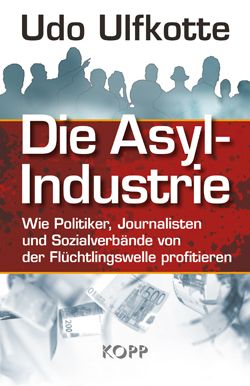





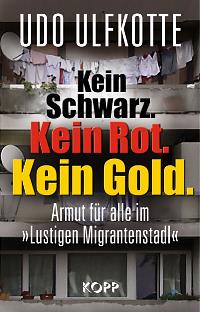
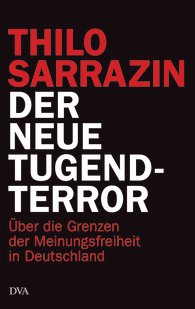

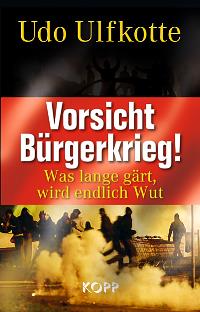


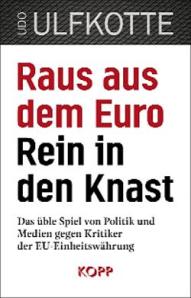



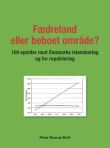

 Indvandrings-
hastigheden voksede
endnu mere i 2013
Indvandrings-
hastigheden voksede
endnu mere i 2013
